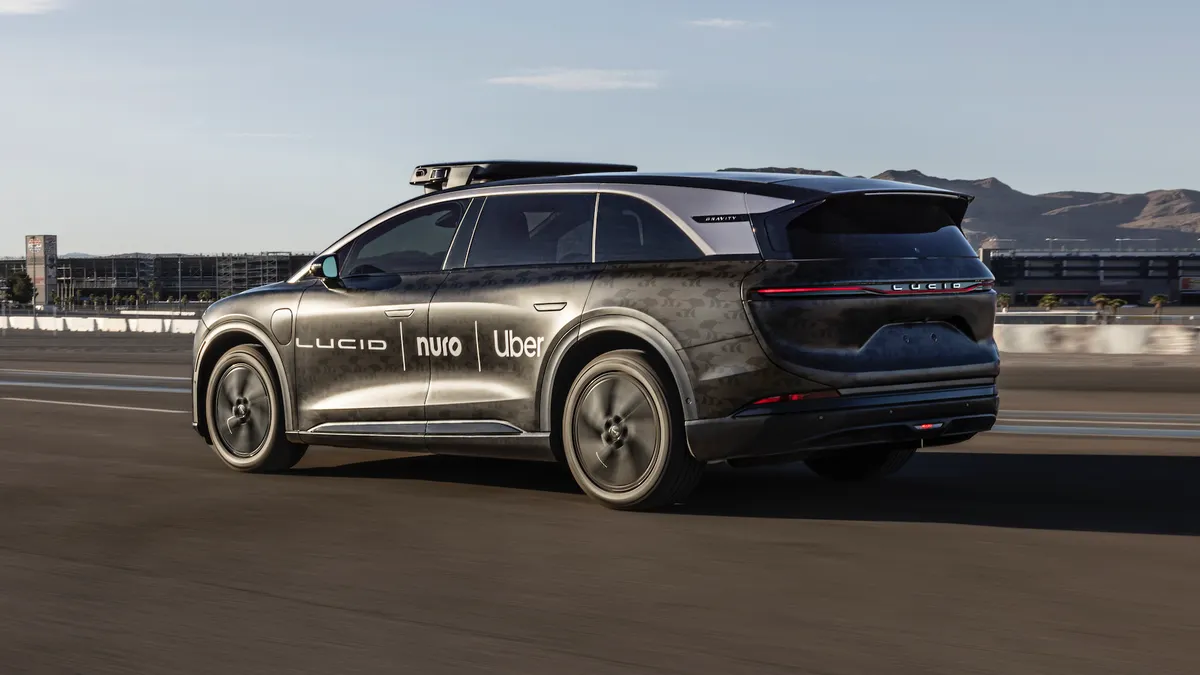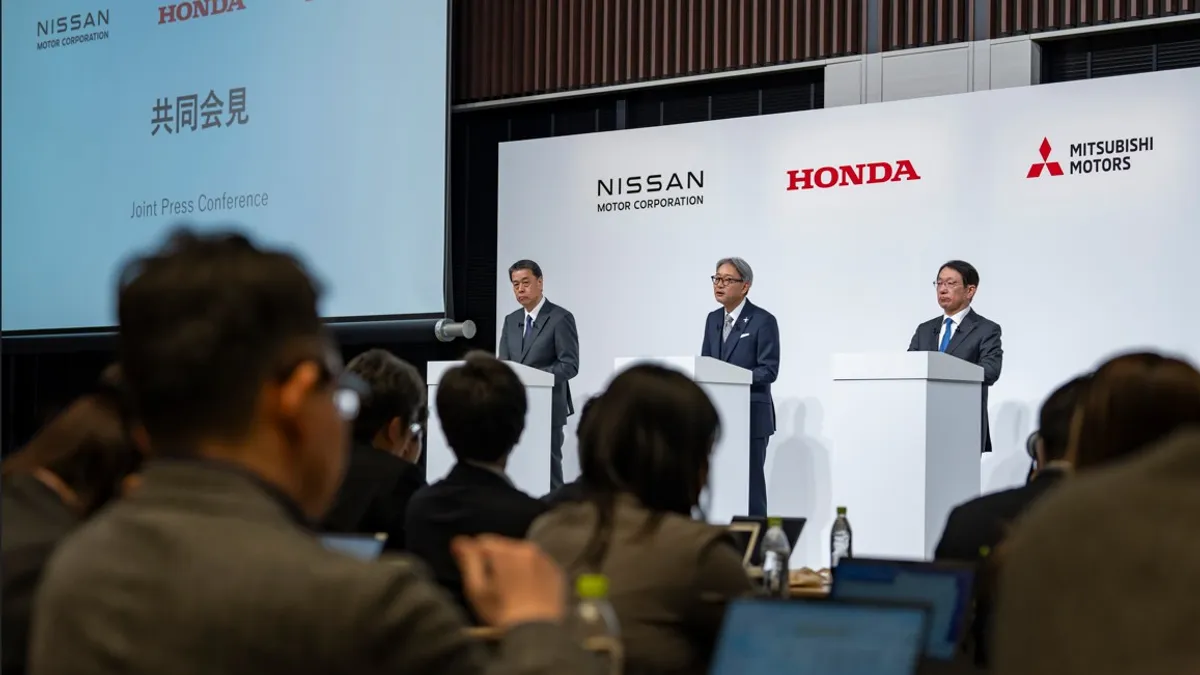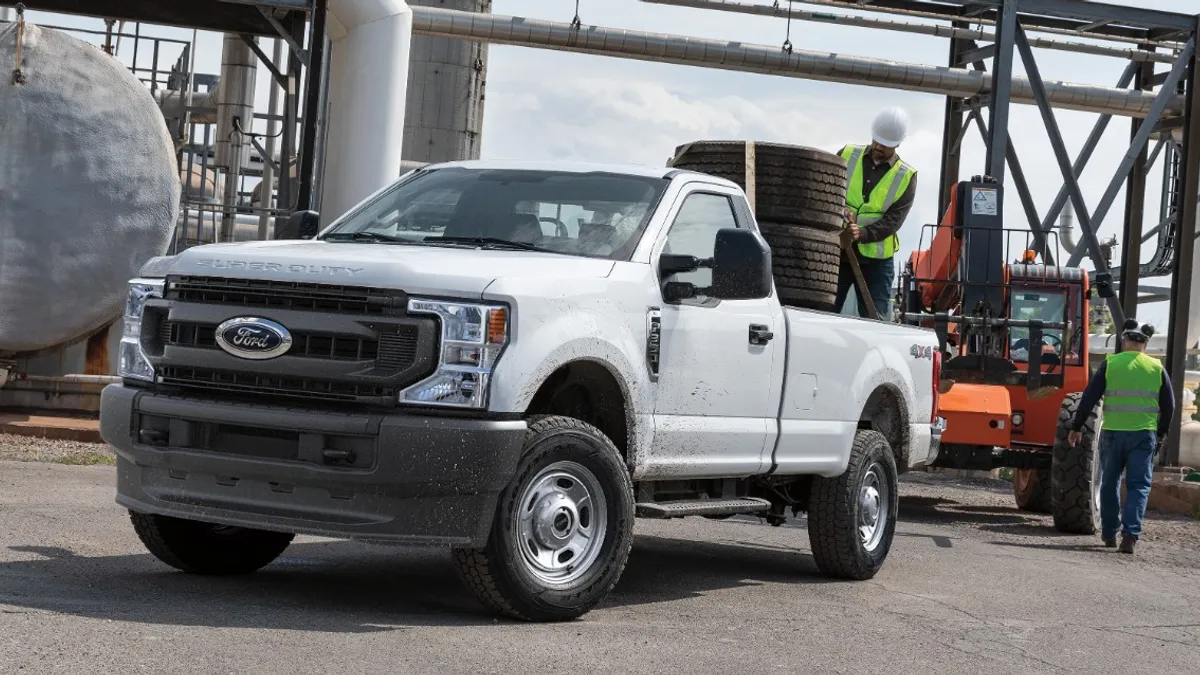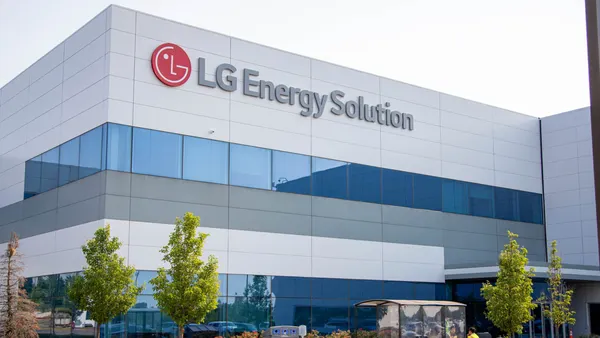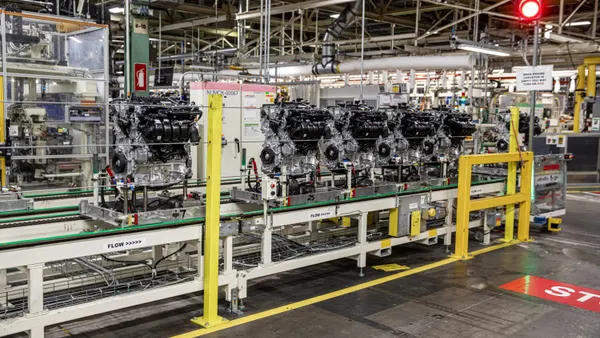Dive Brief:
- Luxury electric automaker Lucid Group has closed on its previously announced $300 million investment from Uber Technologies to add robotaxis to its ride-hailing platform, the company announced in a Sept 4 press release.
- The investment helps cover the development costs associated with adding the self-driving Lucid Gravity SUVs to the Uber platform. The EVs are being outfitted with autonomous driving technology developed by startup Nuro and will be built at Lucid’s electric vehicle factory in Arizona.
- The first Lucid Gravity robotaxis will be deployed by Uber later next year in a undisclosed U.S. city. Over the next six years, Uber aims to add up to 20,000 Gravity SUVs outfitted with Nuro’s AV technology to its platform in dozens of global markets.
Dive Insight:
Uber’s $300 million strategic investment in Lucid was made via a private placement, according to its July SEC filing. However, Uber plans additional “multi-hundred-million dollar investments” in both Nuro and Lucid as it further scales robotaxi deployment globally, the company announced in July. The Lucid Gravity SUVs will be owned and operated by Uber or one of its third-party fleet partners and available exclusively on the Uber app.
Nuro’s comprehensive autonomous driving technology stack is called the “Nuro Driver.” It supports SAE Level 4 autonomy, which allows the Lucid Gravity robotaxis to operate without human intervention on the Uber platform within “predefined geofenced areas.” In addition, the Gravity’s 450-mile EPA estimated range requires less downtime for charging so Uber can the maximize the vehicles’ availability on its ride-share network.
The Nuro Driver technology stack for the Lucid Gravity SUVs includes automotive-grade hardware, AI-powered software and a comprehensive vehicle sensor suite using a combination of solid-state lidar, cameras and radars. To ensure a high level of safety, the vehicles will be equipped with redundant electrical and motion control architecture to prevent any single-point failures.
All of the necessary hardware for automated driving on the Uber platform will be preinstalled on the Lucid Gravity SUVs during assembly. Nuro’s AI-powered software will be activated once the vehicle is commissioned and deployed by Uber, the companies’ announced in July.
The Nuro Driver integrates an end-to-end AI model to quickly adapt to new driving environments and different vehicle platforms, allowing Uber to more easily scale deployment of the robotaxis globally.
“Uber’s investment is just the latest example of a third-party validating our highly advanced technical platform,” said Marc Winterhoff, Interim CEO at Lucid in the release.
In addition to Nuro, Uber is also partnering with its rival Waymo to add self-driving vehicles to its platform. The company has already deployed roughly 100 Waymo robotaxis on its ride-share platform in Austin, Texas, Uber CEO Dara Khosrowshahi said on the company Q1 earnings call in May. Khosrowshahi also announced a partnership with May Mobility to launch its autonomous vehicles on the Uber app in Arlington, Texas, later this year.



